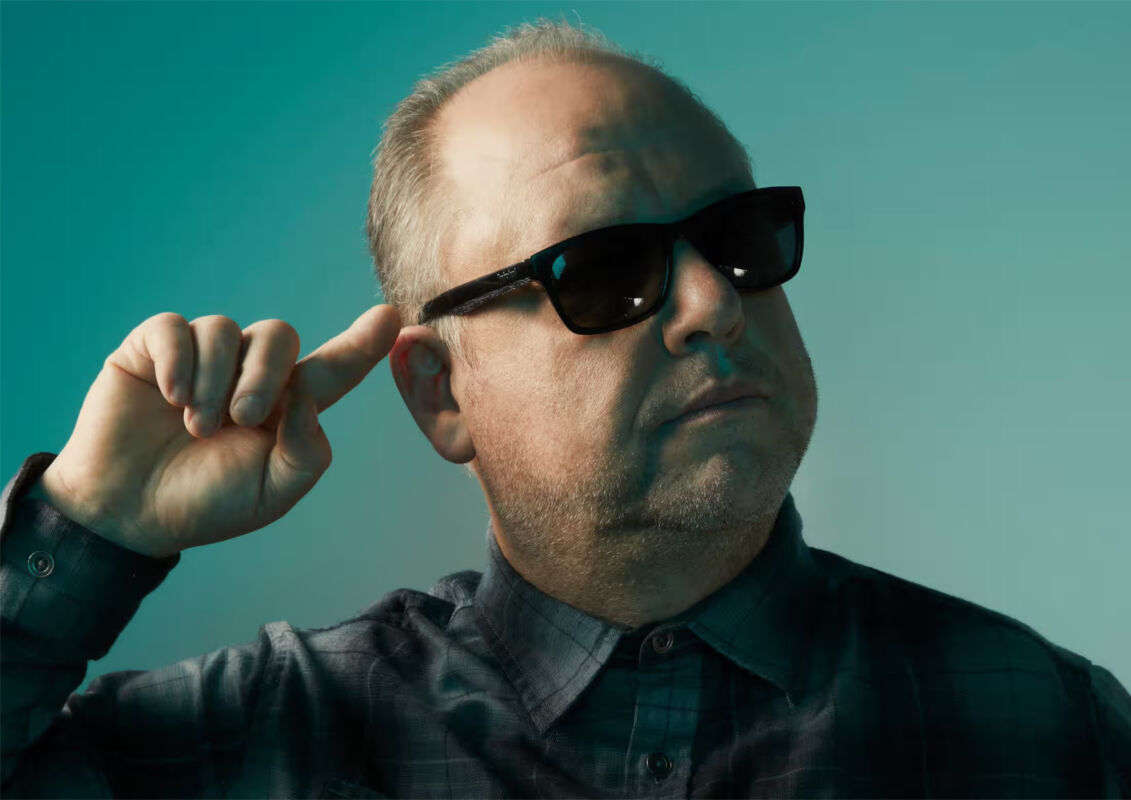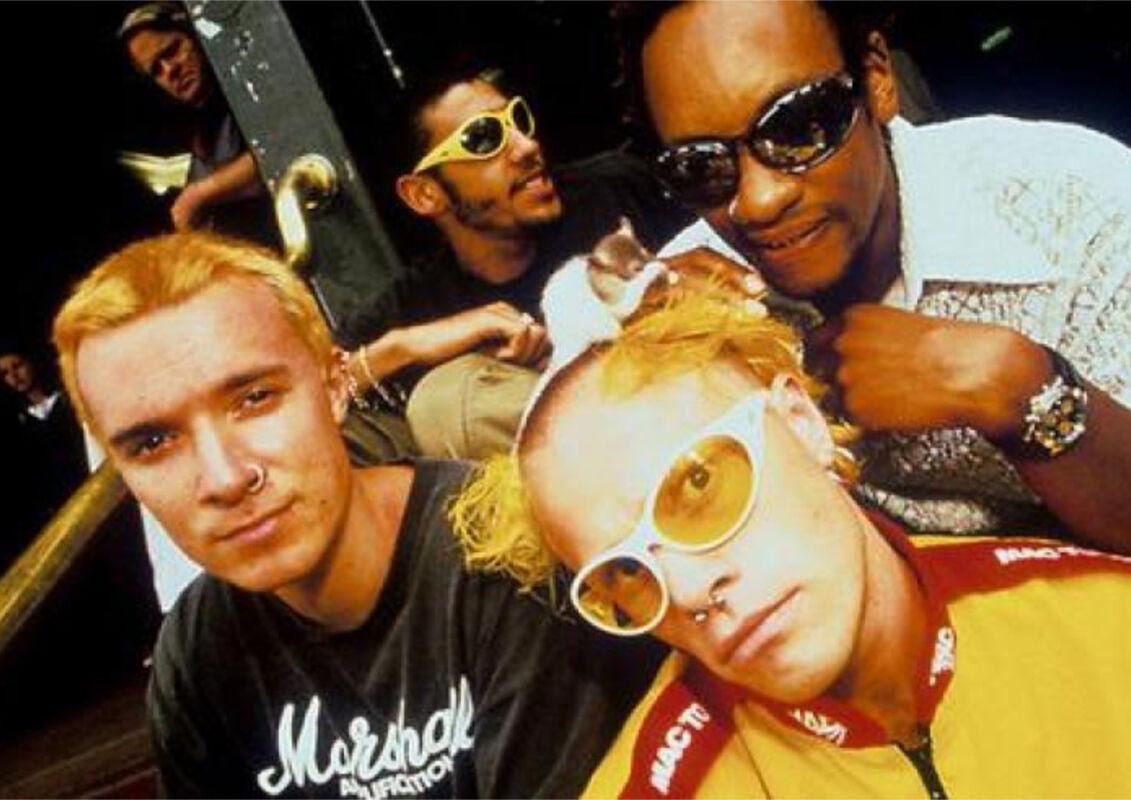
Who are you when you start with nothing, sell your motorbike to support your habit, go bankrupt several times over and, despite all of this, still refuse to quit? You’re Erick EST, that’s who. From Junkie, to JRX, to Navicula, he’ll tell you everything you want to know. And why do you want to know? Because he makes damn good films.
Erick, you’ve another notch in your belt! “Busur Hujan,” the latest videoclip for Navicula, totally represents the die-hard spirit of Navicula and the bold beauty of the Rainbow Warrior. Was being a cinematographer or filmmaker your childhood dream?
Thanks, I’m flattered, because “Busur Hujan” was actually one of those very short-notice kind of projects. A few days before Rainbow Warrior arrived in Bali, Robi, the lead singer of Navicula, called me and asked my opinion with regards to making a videoclip on the Rainbow Warrior. My response was pretty instant; I told him that I thought it was a great idea and started planning the shoot that same day. Of course, other than the regular shooting session (translation: a ball-breaking schedule and zero sleep), I was also able to get my hands on a file full of Greenpeace campaign footage. It was during the editing process that I was able to cut these files together with my own footage of the Navicula boys on Rainbow Warrior.
You know, I don’t think anyone who knew me when I was younger would’ve thought I’d be a filmmaker. I come from a very simple family, we don’t have an artsy blood-line at all, and we had no extra money to buy expensive gadgets. The only real clue to this might be that when I was 1 or 2 years old, my father bought me a present—a small, cheap camera. It wasn’t really a real camera but it was my first introduction into cinematography and I was hooked. I played with it all the time! Other than that, art related activities were barely on my radar, I mean, when I was in high school I was more into physics. The shift occurred in the visual art department at my university—physics and art, if you really look at them, are actually related; they are both based on relativity. So, I returned to my childhood obsession and, even though I didn’t really have any experience making movies, when a uni friend asked me to join him in competing in a national movie competition I just said sure, without really thinking. That’s when I made my first short movie, Kenapa Aku. I laugh when I think about how long it took us to finish the movie—not only because we were still very amateur, it was because we were so damn broke. We rented a Super 8 camcorder and I have no idea how we paid for it—I forgot! What I do remember is that, from there, I became obsessed with producing movies. Telat was my second creation, followed by February 505, and then there was so many more after that I had to sell my motorbike to support my hobby. But it’s been worth it; I got my first award in 2004 in 15/15 Film Festival for The Best Indonesian Movie where I was also nominated for Best Cinematography, Best Director, and Best Editor.
How did you end up directing video clips? What was your very first clip? How did people react to it?
Yeah, it was funny how it all started. At the time, if I’m not mistaken, 2002, I was editing Februari 505 at Bang Aya’s place which was also a rehearsal and recording studio. This band, 100 Derajat Celsius, happened to be there, too. We started talking and one of the guys asked me whether I could do a videoclip for them. I just thought, well, a videoclip is shorter, and that factor alone was already a positive. I figured that it must be easier making videoclips than making movies, so I said yes. With a dirt-cheap budget, I made their clip using nothing but a Mini DV. The band liked it a lot, “So MTV,” they commented. Bang Aya played my clip a lot at his studio and the people who saw it thought it was good and more and more bands started asking me to make videoclips for them.
At first I did everything alone, I was the cameraman, the director, the editor, got my own coffee and cigarettes from the warung, the whole thing was just me, by myself. Friends offered to crew and they were all willing to get paid crap salaries because they cared more about having experience, for their own CV. I went bankrupt 6 times. A bit too rock-n-roll maybe? Or just plain unprofessionalism. Hehe.
High profile bands like Superman Is Dead and Navicula often use you as their videoclip director. As a matter of fact, you are now the best local videoclip director in Bali. You want to share your secrets with young filmmakers so they can compete for the top position?

Hmmm… I have no special recipe for this. You know, just like life, you have to have the spirit of survival. You live and learn. I’ve been through so many bad things. Horizontal conflict with friends, partners, investors, small and big intrigues. But that’s just life. You should try to get past all this and get back on your feet again. Just so you know, I almost quit doing movies. I thought my career was stuck—and I was broke. People say that I should move to Jakarta to improve my chances, but I hate the idea of being friends with the industry mafia and having to follow their rules, so I stay in Bali. For sure, it’s very hard to survive, but, amazingly, although it has happened slowly, things did get better for me. A few overseas artists have wanted me to direct their clips and my clips for Superman Is Dead have given me a decent reputation too. We worked together back in the day for SID’s clip, mate, remember?
Haha, yeah. I also remember that you had a movie project which cast JRX as the lead role. What’s the story with that? Are you still making movies?
That was back in 2006. Junkie, that’s the title, and yes, JRX was the lead, there was also Tony Sruntul, Igo Blado, and Rathu. I, we, made the movie with a minimum budget (what’s new, eh?) and maximum spirit. In the end we couldn’t finish the movie. One of the main factors being that zero of the big fish in Jakarta were interested. Junkie needed to be censored first, then there was the billion Rupiah cost to shift it into 35mm film, blah blah blah. I searched for sponsors, and still had no success. I’m quite lucky that it wasn’t released, in a way my failure in gaining sponsorship for that film has been a blessing in disguise because, when I look at Junkie now, I still think it still needs a major addition here and there… I do want to continue that project but I don’t know when. Maybe this year or next year. I’m very busy at the moment; I’m currently making a movie about the history of kites, not to mention tons of unfinished videoclips! Let me finish them all first.
I still dream that one of these days I’ll make a timeless movie with a strong character, something like The Godfather. The basic idea for my film is already in my head, so I hope I can shift this into reality. And, I have a dream of building an independent movie museum in Bali too. A place where you can find everything from big-hit films to rare, unappreciated beautiful movies. The only problem with this dream is that I haven’t worked out how I will finance it! Just for the record, I make commercials/advertising movies too. There was a time when I was very idealistic and refused to take orders, I thought that the advertising agencies should follow my direction. But, as I said, you live and learn. Now I’m much calmer. And, because of this, on those occasional moments I do make advertising movies, there’s only a relatively low chance of me having a fight with the advertising agencies during production!
How do you find the videography – cinematography – filmmaking scene in Bali at the moment? Ideally, how should it be? How does Bali compare to the rest of the nation?
Videography in Bali has evolved fast, it’s a very productive scene, and, I’d say that it’s on the right track. Many young videographers have begun to make videoclips or short movies, supported by today’s technology which has helped to make things much easier to do, but there’s still no strong character driving the scene yet. A few stable characters, yes. And there’s other big obstacles which have to be sorted out, the main ones being management and community. Bali is still unfamiliar with professional management. In the meantime, Bali would also benefit from a solid cine club with solid supporters. This is a big job and every local movie enthusiast should take the responsibly for developing this on board. If we can develop an appreciation for film, Bali can be placed properly on the Indonesian filmmaking map. Don’t get me wrong, Bali is kind of already on this map but, generally, Bali’s movie scene still needs a big push. In saying that, I’ve started getting students looking to be trained in videography from quite a few places—everywhere from Russia, to Timor Leste, and from big cities like Jakarta, Surabaya, and Bandung so that’s positive! Not to mention the fact that several documentary movies have received national acknowledgement.
Any last nagging words?
Life is like a movie. Remember, it’s all about how well you play your role.
SEE ALSO
Homegrown & Well Known: AGUNG BAWANTARA and MARIA EKARISTI
________________________
⢠Homegrown & Well Known is my biweekly column in The Beat (Bali) mag. Basically it’s an interview via e-mail with Bali’s local big shots. This is the 23rd edition, was firstly published—a slightly different version—on The Beat (Bali) #341, Jul 05-18, 2013
⢠Co-editor: Lauren Shipman
⢠Photos courtesy of Erick EST
⢠Check out also two newest videos by Erick, “Busur Hujan” (Navicula), and “Jadilah Legenda” (Superman Is Dead)





